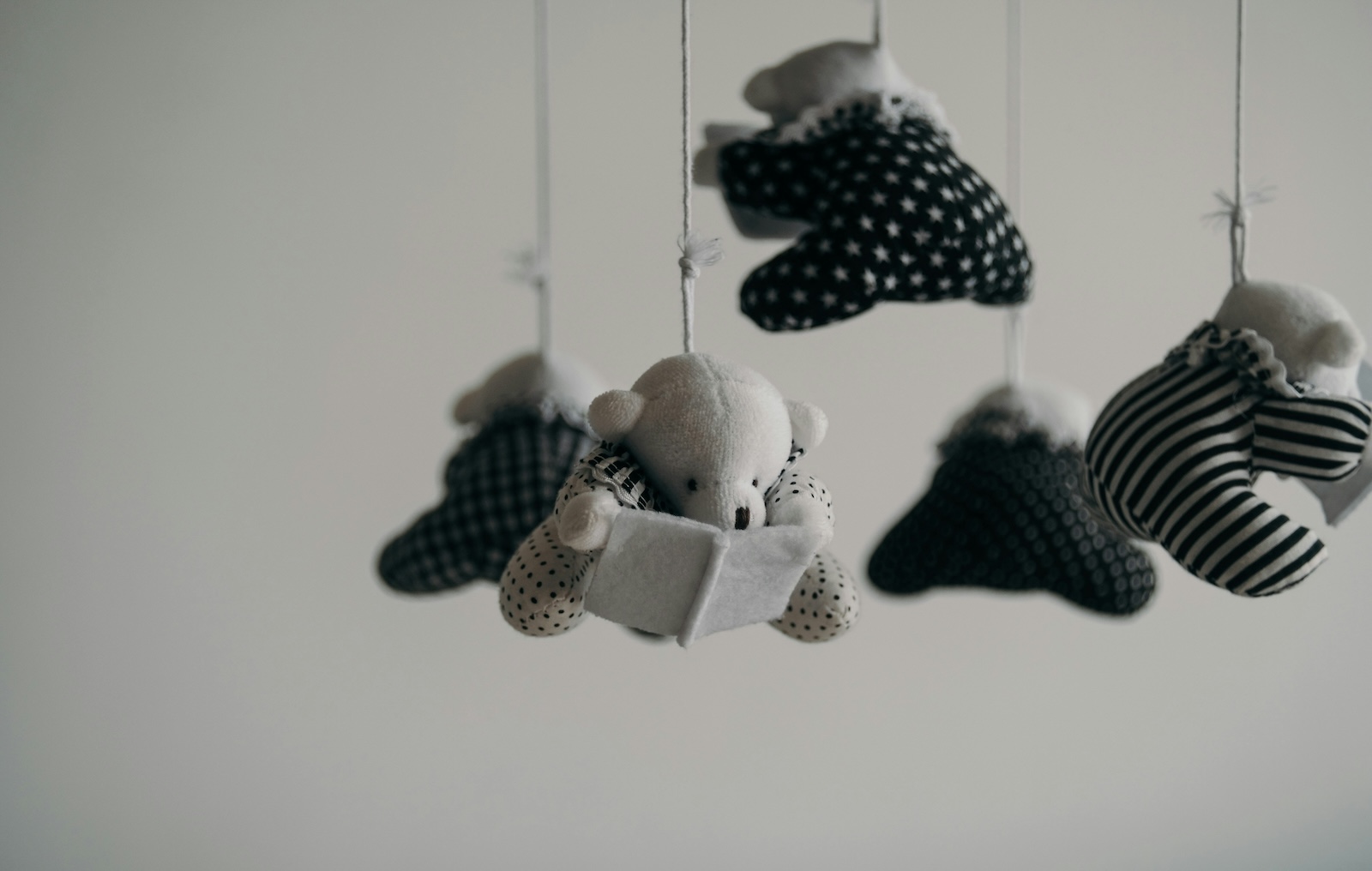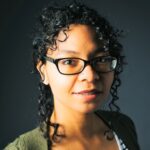Why Motherhood by Shay Galloway

My mother did not want seven children. She birthed me at the age of seventeen, her high school diploma incomplete, her own mother slowly dying. I imagine the discovery of my conception was not one of joy and wonder, but rather of fear, desperation, exasperation, and worry. When I was an adult, my mother divulged rather matter-of-factly, that her stepmother offered to adopt me, which my mother turned down because I was “her responsibility,” her obligation. The consequence of her actions. In telling me this, she confirmed what I had felt for so many years: my existence was a burden, something to be endured, a duty.
Nearly thirty years after the discovery of my impending existence, I sit cross-legged on the bed I share with my husband, staring at the faintest of lines on the test my friend sent me as a joke for my birthday a month before. My husband is on the other end of the phone, telling me something. He’s going to be late or maybe just updating me on some other thing we’d been discussing. I don’t know. I’m only half-listening, laser focused on the strengthening line. I’m waiting for the fear, the excitement, the shock. Anything. But there’s nothing, just two pink lines and my husband blabbing on the other end.
Before we married, we had, of course, had the conversation about kids. We had agreed that we liked the idea of having children, but not anytime soon—we were barely in our mid-twenties after all. We agreed to think about it more seriously when we got closer to thirty. And up to then, I’d never felt the compulsion to bear—or even hold—a baby.
I didn’t not want children, but I also didn’t want them. As a girl raised in the LDS (Mormon) church, motherhood was an assumption. Daughter, wife, mother. Goals to be achieved on the path to exaltation. I assumed it, even writing it in my future plans: Go to college. Marry in the temple. Have kids (maybe like 4?) I repeated the phrases we chanted almost weekly: “When I build my home and my family, my children…” but the words were never intrinsic. The other girls were excited by the idea of husbands and babies, and I was not. I wasn’t fully against the idea of it all, but it was not something I dreamed about. I merely expected it, as one might expect menarche or gray hair: an inevitable fact of life. While we were regularly told why we should have children, (it was our God-given power and duty, to give bodies to all the unborn spirits waiting for their turn on Earth, so we aren’t alone when we die, etc), no one ever asked “Why would you want to have children?” Or even, “Do you want to have children?”
For the better part of my adolescence, my mother hardly existed as more than a perpetually, miserably pregnant figure in the periphery of my life. Dad was the domineering one. The Disciplinarian, the Decider, the Lecturer. Anything I told or asked my mom, she relayed to my dad. But Mom? She was a shadow to me, so mired in her duty to be fruitful and trying to stay afloat of her own despair that her presence hardly made an impact on me.
My first brother was born when I was four. The memory of his birth comes to me in snippets: visiting the hospital, my excitement for him to come home, proudly helping change diapers. Beyond that, I don’t remember much of our early days as the children of a single mother. He was not my burden; I could love him unconditionally as a sibling. When my first sister was born five years later, I was nervous I’d be forgotten—I was a stepchild by then, after all. Barely four months later, my mother was pregnant again. Another sister. After her birth, my mother told everyone she was done. In her mind, our family was complete. In my dad’s mind, that decision was up to God—and he worried birth control would make her “fat.” Within the next nine months, my mother was pregnant again.
Christmas morning 2001: the four of us, ranging from nine months to eleven years, were playing in the living room, our parents in the garage. I heard the door open, quickly, angrily, and my mother walked past us without so much as a glance and cloistered herself in her room, Dad soon followed with a sigh behind her. Though they said nothing to us, I sensed it, and I dreaded it. The following September, another brother. By the next summer, we moved, Mom again pregnant. Another brother. That brought us up to six: three boys and three girls. I was thirteen. And when my mother went nearly two years without a pregnancy, I thought Thank God, this is it. But I breathed relief too soon.
When I learned my mother was pregnant with my youngest brother, I cried. Not at home, not in front of parents who would reprimand me for my hysterics and tell me I was selfish and heartless in my disdain of a new life. But at school, I cried, quietly in a corner of lockers, witnessed only by my best friend. The tears came as I choked out the words laced in fury and despair. “My mom’s pregnant.”
“Again?” This was the fifth baby in six years.
I nodded. She hugged me. She knew not to say congratulations.
As I’d gotten older, as the number of babies increased, the expectations placed on me as the oldest child—the oldest daughter—had compounded. The novelty of big sisterhood had long worn off, tarnished instead with the drudgery of bottle warming, diaper changing, babysitting, bathing, laundry folding, and dinner making. When I could drive, added to my list of duties was the school run—making sure I got myself up early enough to shower before waking everyone else, helping the little ones get dressed, fed, and out the door. Often, I’d get home and find my mother asleep in the only place in the house completely off-limits to the other kids—my bedroom. I’d come in, see her sleeping, quietly set my bag down and leave her, promptly rotating the laundry I’d put in the washer before making a start on dinner and corralling the other children.
The more my mother withdrew, the more responsibility placed on me, the more annoyed I became with the external expectation of motherhood. I never felt unloved, or even resented, but I did feel overshadowed by the regrets my mother harbored, by the loss of what might been, by the obligation my parents fulfilled in keeping me in health and home. I grew to dislike children with their neediness, mess, and noise. At eighteen I moved away, my sisters carrying their things into my old room as I moved my things out. I went to college. I traveled. I got married. I moved to the city. I went to grad school. I started a career.
I never put much stock in the proverbial “biological clock.” But then there I was, aged twenty-seven, on a train, heading from the small office I managed in downtown Chicago to grad classes at the other end of the Loop. A baby grinned at me from across the aisle, toothless and fat cheeked, ignoring the other Red Line commuters to stare intently at me. The delight in the baby’s eyes pulled from the most instinctual recesses of my body the sudden want—no need—to take hold that baby in my own arms. The feeling overwhelmed me, as though my womb had woken warm and wanting. Why this baby? Why now? It was not unlike almost every other baby I’d ever seen in public, and yet, instead of smiling back politely and returning to my own baby-free thoughts, my body thrummed from somewhere deep inside me, “I need one of those.”
And only then I finally sat down and asked myself the question: Why do you want to have children?
People come up with all sorts of reasons why one should have children: To have someone who loves you unconditionally. To outgrow selfishness. To provide future laborers for the economy. To have someone look after you in old age. To pass on your legacy. To provide bodies for all the spirits in the premortal realm. To give your life meaning and fulfillment. But each of these seem flimsy—and ultimately self-fulfilling—reasons to have children. Love is not guaranteed. Who gives a shit about the economy? You can have a dozen children and still die alone. Legacies can crumble in a minute. I knew many people without children who lived fulfilled and meaningful lives. I reasoned against each argument, but my body still said, “I must.” I got real, I drilled down deep. Why would I, a woman in a creative field with a higher education, want to have a child, beyond the physical pull of it? More than anything, what did I want out of motherhood?
It took me two years to reach my honest answer. Vanity. I wanted to be a mother just to prove I could. To prove I could do it and do it well—better even than my own parents. I wanted to show how powerful I was, that I could do it all, have it all, a child, a career, a creative life. Pregnancy and birth and the power of creation—who could turn down the chance to be a god?
But perhaps not all my reasons were so self-fulling. It was post-2016 election, and the hate and bigotry I naively thought was dispelling had in fact only been lying in wait for permission to come out of the woodwork. While I couldn’t care less about the economy, I do care about society. I’m hardly an activist, but I thought maybe in having a child, and raising it as a citizen who would carry on the progress society has ushered, would counteract the children that would come to those teaching hate and destruction.
I knew I did not want to repeat my mother’s life. I didn’t want to weep at every new pregnancy, resigned to a life I had not envisioned, feeling like I had no power over my own body. If I was going to have children, it would be on my own terms. I wouldn’t leave room to resent my child, or for them to see me as nothing more than a shadow, a figure who gave them food and shuttled them around. I wouldn’t forget who I was or martyr myself. I never wanted them to ask themselves, “What could she have done if it wasn’t for me?” I’d set an example for my child—son or daughter—showcase that mothers are people too, with hopes and dreams and interests of their own. And they, in turn, wouldn’t feel burdened with the weight of my legacy or happiness. They would be allowed their own, unfettered personhood, and I would guide them through it.
So there were no tears—neither of joy nor despair—when I learned we’d be parents. Just the recognition there was no turning back, and the ever-lingering question of whether it would all be worth it.
 Shay Galloway is a writer, instructor, and mother residing in Washington State.
Shay Galloway is a writer, instructor, and mother residing in Washington State.
